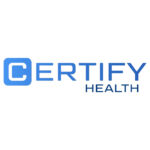Financial success is no longer defined solely by the volume of patients seen but by the value of care delivered. The shift toward value-based care models has placed new demands on healthcare organizations to balance high-quality patient outcomes with operational efficiency. In this transformation, Revenue Cycle Management software plays a pivotal role — serving as the bridge between clinical excellence and financial sustainability.
The Changing Landscape of Healthcare Reimbursement
Traditional fee-for-service models rewarded quantity — the more procedures performed, the higher the reimbursement. However, this model often led to inefficiencies, fragmented care, and patient dissatisfaction.
Value-based care, on the other hand, rewards healthcare organizations based on patient outcomes, care quality, and cost-effectiveness. While this approach promotes better healthcare delivery, it also introduces complex financial and administrative challenges — from managing bundled payments to tracking performance-based incentives.
That’s where revenue cycle management software becomes indispensable. It empowers providers to efficiently handle the financial side of value-based operations without compromising patient care.
How Revenue Cycle Management Software Supports Value-Based Care
1. Streamlining End-to-End Financial Workflows
A robust revenue cycle management software automates the entire billing and reimbursement process — from patient registration and insurance verification to claims submission and payment posting.
By minimizing manual intervention, it reduces administrative errors, accelerates cash flow, and ensures that every dollar of earned revenue is accurately captured.
In a value-based care environment, where reimbursements depend on outcome metrics, such automation ensures providers remain financially stable while maintaining compliance with payer requirements.
2. Enhancing Data Transparency and Financial Insights
One of the biggest challenges in value-based models is the need for real-time data visibility. RCM software provides detailed analytics dashboards that track:
-
Claim status and payment trends
-
Denial rates and root causes
-
Patient payment behavior
-
Payer performance metrics
This data empowers healthcare leaders to make informed decisions, identify revenue leaks, and continuously optimize their financial operations.
When financial transparency aligns with clinical outcomes, it fosters a sustainable business model built on both patient satisfaction and fiscal responsibility.
3. Reducing Claim Denials and Payment Delays
In a system where reimbursement depends on measurable results, denied or delayed claims can directly affect a provider’s bottom line.
Modern revenue cycle management software uses automated claim scrubbing, eligibility checks, and AI-driven error detection to reduce denials.
By catching inaccuracies before submission, the system boosts first-pass claim acceptance rates, ensuring faster reimbursements and improved cash flow — vital for sustaining value-based operations.
4. Enabling Patient-Centered Financial Engagement
A major pillar of value-based care is patient experience. RCM software extends beyond billing to include patient payment management tools that enhance financial transparency.
Features like digital statements, automated reminders, and flexible payment options empower patients to manage their healthcare costs easily. When patients trust the billing process, satisfaction rises — contributing directly to the overall value-based performance of the organization.
5. Supporting Compliance and Value-Based Metrics
Revenue cycle management software also plays a crucial role in maintaining compliance with complex healthcare regulations, payer contracts, and reporting standards.
It ensures that all billing and coding align with value-based payment models, such as shared savings programs, bundled payments, or pay-for-performance initiatives.
With integrated compliance tools and audit trails, providers can mitigate risk and maintain accountability — both financially and operationally.
The Strategic Advantage: Linking Financial Health to Patient Outcomes
In a value-based ecosystem, financial sustainability depends on operational excellence. Revenue cycle management software gives healthcare organizations the ability to:
-
Align billing with outcome-based care delivery
-
Gain real-time visibility into financial health
-
Automate complex workflows that reduce overhead costs
-
Enhance patient trust through transparent financial interactions
Ultimately, it transforms the revenue cycle into a strategic enabler — not just a back-office function — driving both better care and stronger financial performance.
Conclusion: A Foundation for Sustainable Growth
As healthcare continues its shift toward value-driven models, Revenue Cycle Management software is no longer optional — it’s essential.
For organizations striving to deliver exceptional patient care while maintaining financial viability, the right RCM platform provides the intelligence, automation, and transparency needed to thrive.

